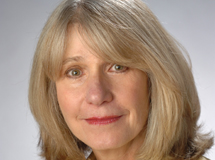Applications Open for 2025 ’Cuse Tank Competition
Applications are open until Monday, Sept. 22, for the Blackstone LaunchPad’s ’Cuse Tank competition. This year’s annual ’Cuse Tank, a featured event kicking off Family Weekend, will take place Friday, Sept. 26 at 2 p.m. in Bird Library’s Peter Graham…


 Patricia Demyan answers questions about Depression Screening Month (October). A brief online depression screening can be completed on the FSAP website. A more comprehensive screening is available in person at the FSAP office located at 111 Waverly Ave., Suite 215 (in the Health Services building). To schedule a screening, contact FSAP at 443-1087.
Patricia Demyan answers questions about Depression Screening Month (October). A brief online depression screening can be completed on the FSAP website. A more comprehensive screening is available in person at the FSAP office located at 111 Waverly Ave., Suite 215 (in the Health Services building). To schedule a screening, contact FSAP at 443-1087.